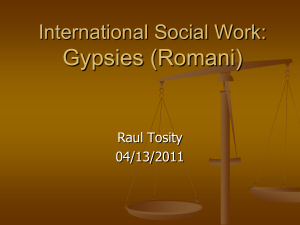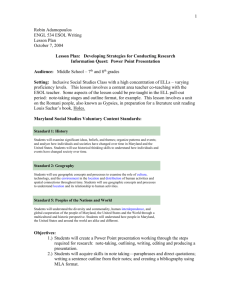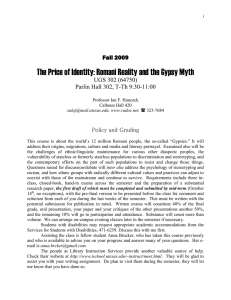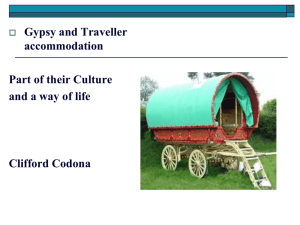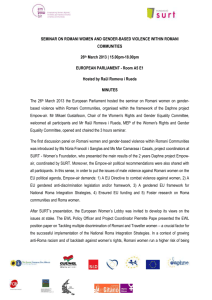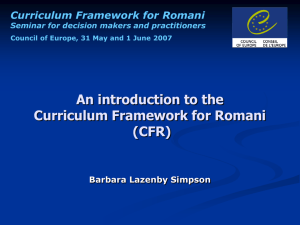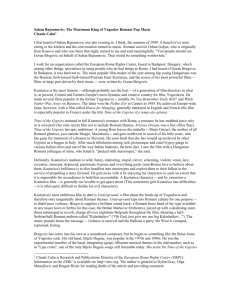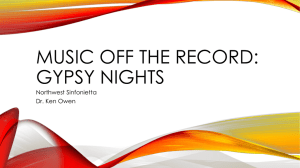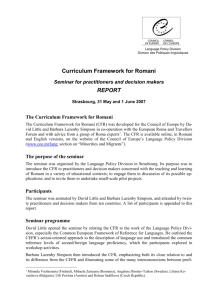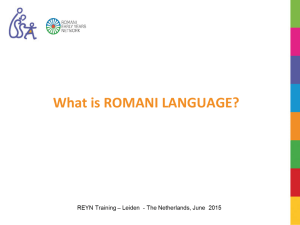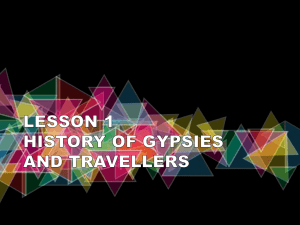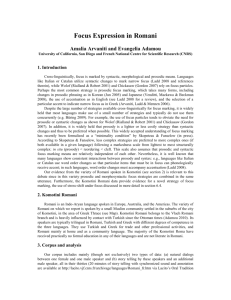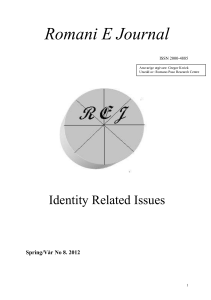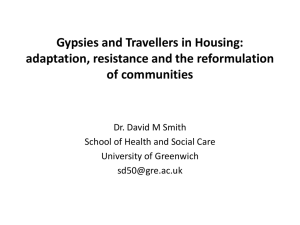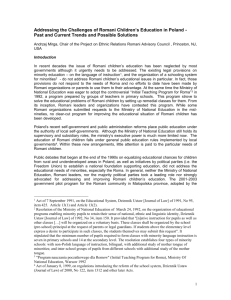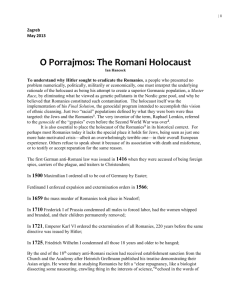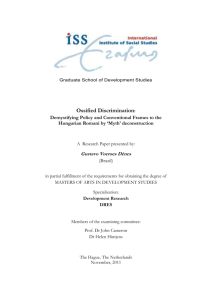Gypsy - Culture - Horton High School
advertisement
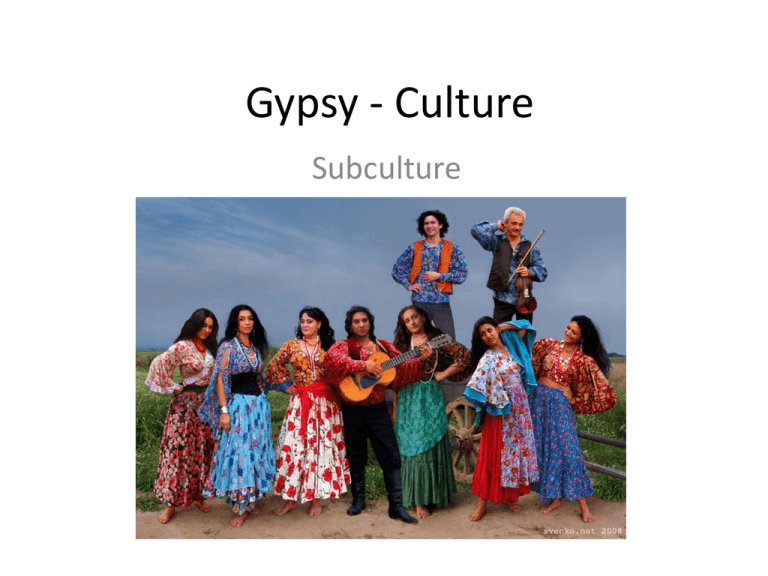
Gypsy - Culture Subculture Question What is a subculture? What are Gypsies? How are Gypsies a subculture? Gypsy Culture The Romani are an ethnic group living mostly in Europe and America. Romani are widely known in the English-speaking world by the Gypsies (or Gipsies). Although they are often called Gypsies, some consider the name “gypsy” derogatory. Since they mysteriously migrated from India and arrived in Europe roughly 800 years ago, the Romani have remained a shadowy, isolated group in the many countries where they’ve spread. What sets them apart is not just their characteristically dark complexion, or the fact that many speak various dialects of the Romani language but as a group that once was enslaved by Europeans, and which over the centuries often has suffered from prejudice, exclusion and sometimes violent persecution. The Romani people have survived in part by developing their own highly insular subculture, with its own largely unique customs, social structure, professions, mores, and spiritual beliefs. Lifestyle • When they first arrived in Europe in the 1300s, the Romani people tended to stay on the move, probably because they had to. Their dark skin color and unfamiliar language led many Europeans to fear that they were advance troops of an Ottoman invasion, and they often were not allowed to establish permanent settlements. Gradually, their wandering developed into a way of life. They found a useful role in the European economy, serving both as a source of seasonal farm labor, as traders and repairers of household goods, and as fortune-tellers and spreaders of news and gossip. Today, most people of Romani roots probably have settled permanently in houses and apartments, in part because of European governments’ efforts to force them to stay in one place. But some still cling to the ancient migratory lifestyle, though they’ve traded the old horses and wagons for cars, vans and recreational vehicles. Attitude Toward Outsiders The Romani word for someone outside their ethnic group is gadzo. The Romani traditionally avoid mixing too much with outsiders, still consider marriage between Romanis and non-Romanis to be a taboo, and often are reluctant to have their children educated in western-style schools or go into professions other than the ones traditionally practiced by their people. Some of this may stem from an insular culture’s urge for selfpreservation, but there also is a spiritual rationale. Spiritual Rationale Romani also believe in the importance of spiritual energy, called dji, which they think is drained when one spends too much time in jado, the non-Romani world. The only remedy is to reimmerse oneself in an all-Romani culture, which is another reason that the Romani tend to keep to themselves. Gypsy Canadian Gypsy • http://www.youtube.com/watch?v=IEcaJ8W1 Dn0&list=PLA5EE757F92318FD8 My story: growing up as a Romany Gypsy in Wales http://www.youtube.com/watch?v=GbVpM38MPA Family, Courtship and Gender Roles: • A Romani family unit typically encompasses multiple generations, and includes a patriarch and matriarch, their unmarried offspring (both young and adult) and a married son, his wife and their children. By the time an older son is ready to establish his own household, a younger son often will have married and brought his wife and children into the family to take the places of the departing sibling. Roma traditionally marry young, sometimes in their early to mid-teens, with matches made by elders in the family, sometimes to forge ties with another family. Traditionally, the family of a bride pays a dowry to the new husband’s family. Romani families often have many children, in keeping with the Romani aphorism but chave but baxt—in English, “many children much luck.” According to Ian Hancock, an English scholar of Romani descent, Romani children often have been viewed as an economic resource, and often are put to work at young ages to help support the family. Article – Child Bride • You will answer all questions – these answers will be used in your final response. Final Response (write this down) Explain how the cultural integration of mainstream values will change the traditional values and beliefs of the gypsy people. Use the following terms in your response: ascribed roles, achieved roles, values, norms and traditions. Use examples to support your response. Underline the term when used. Gypsy – Child Thieves • http://www.youtube.com/watch?v=rVyxx2Kgxtk • 1 hour documentary – a closer look at gypsy culture. Is this documentary an example of the prejudices coming into play against the gypsy people or an accurate representation of this mysterious culture? • While you watch the video you are welcome to work on the final response. For this you will need the answers from last class. • All responses are due next class.
